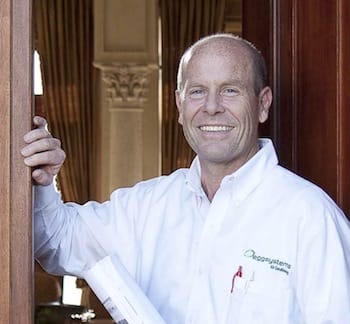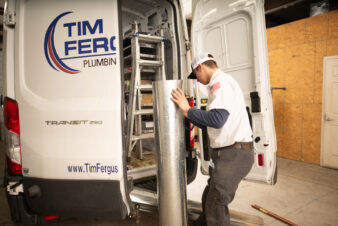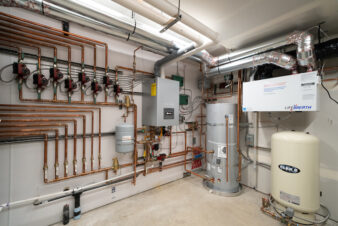 We all know that geothermal HVAC has been around for decades. Solar PV and high-efficiency air source systems seem to be popping up all over. Is the geothermal HVAC market slipping submissively into slumber? Well, I’ll tell you what I know –
We all know that geothermal HVAC has been around for decades. Solar PV and high-efficiency air source systems seem to be popping up all over. Is the geothermal HVAC market slipping submissively into slumber? Well, I’ll tell you what I know –
Green technologies for home and business may seem to have reached a level of complacency, and geothermal HVAC is still just a small slice of that pie. I can assure you that the next plateau for which we are waiting has got “geothermal HVAC technologies” written all over it.
The issue is reduction of kWh consumption. But are people buying into it? Green projects accounted for 20% of all newly built homes in the US last year. By 2016 ,the Wall Street Journal states that we can expect to see up to 300% growth in green housing projects. Geothermal is certainly a big part of that growth.
With natural gas prices at an all-time low ($.60 per therm), heating costs for homes and businesses have reached an all-time low. Geothermal HVAC systems used to be overwhelmingly cost effective against natural gas (and it still is against propane and other heating sources). But history has shown us that we should not be fooled by artificially low energy prices. Just look at this 2012 article from Sustainable Plant: “Low natural gas prices won’t last, because way too many folks are making far too many plans to cash in.” And when energy prices do increase, many will make the “surprised” face. Green movement number two is on the way, and for more reasons than just increasing energy costs.
We are at a level of sustainability in heating and air conditioning that is in the dark ages. Air source heat pump efficiencies have gone up significantly, and upgrades are a quick one-day project . So what else does geothermal HVAC have to offer to convince contractors and customers to make the switch?
Geothermal HVAC technologies provide many tangible and impressive benefits, most of which have not been marketed in a way that sticks with us. For example, Geo is among the only “invisible, out of sight and out of mind” sustainable and renewable technologies employed in home and business today. When the neighbors have a “beautiful and impressive” array of solar PV cells on their roof, one might reconsider investing roughly the same amount into a geothermal HVAC system, even though financially, the Geo makes more sense.
The fact is, geothermal HVAC systems remove up to four times more kilowatts hours of consumption from the electrical grid per dollar spent than photovoltaic can add to the electrical grid per dollar spent. Homes and businesses desiring a Net Zero status come closer to making that a reality by first implementing geothermal HVAC technologies. When considering a Net Zero application, this significantly reduces the size of the PV array, and related costs. The real solutions in Net Zero applications are summed up by the statement, ““Giant arrays of solar panels produce power, while tankless hot water and geo-thermal air conditioning reduce demand.” from the news report, “Downtown St. Pete boasts new, ‘net-zero’ building”.
Now back to some of the tangible assets of geothermal HVAC technologies. With Geo, we get:
- Elimination of outdoor equipment
- Storm proofing (NYT article)
- Longevity of system (a result of all indoor equipment)
- Elimination of fresh water consumption (from commercial cooling towers)
- Elimination of fossil fuel consumption (on-site)
- Superior comfort in heating and cooling modes
- Enabling thermal load sharing (pool, DHW, air-conditioning)
- Efficiency of system (up to 40 EER)
There are only a few major manufacturers of HVAC equipment that don’t have a geothermal line (though I can’t think of any right now). You’ll find that most manufacturers have begun to focus more closely on the geothermal market, and I can attest that we are in the midst of witnessing the “awakening of a sleeping giant “. I believe that there is enough evidence to get you to seriously consider entering the geothermal HVAC business. I’ll tell you more about how in future posts…
Jay Egg is a licensed geothermal consultant and the owner of EggGeothermal. He has co-authored two textbooks on geothermal HVAC systems published by McGraw Hill. He can be reached at jayegg.geo@gmail.com




Join the conversation: